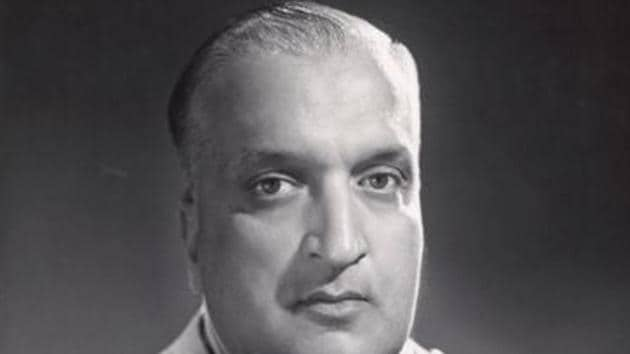Retracing the rich history of J&K, writes Karan Singh
Both Jammu and Kashmir are unhappy with the UT status. Restore normal political activity soon
In all the discussions and writings on Jammu and Kashmir (J&K), the Dogra factor is almost always neglected or passed over. The fact is that the state of J&K would not have come into existence had it not been for the formidable combination of diplomacy and valour shown by the Dogras under Maharaja Gulab Singh (1792-1858). A favourite general in the armies of Maharaja Ranjit Singh, he performed valiantly in several of the Sikh wars in Afghanistan. As a result, Maharaja Ranjit Singh bestowed upon him the title of the Raja of Jammu with a personal Raj Tilak, on the banks of the Chenab in 1822.

Even during Maharaja Ranjit Singh’s reign, Gulab Singh had consolidated the Jammu region and started the Dogra advent into the Himalayas. After the passing of the great Punjab King, the Treaty of Amritsar in 1846 gave Maharaja Gulab Singh the title over the Kashmir Valley. It was not vacant, and the Muslim governor there put up a strong resistance to the Dogras. At the same time, there were the remarkable trans-Himalayan military expeditions by Dogra soldiers from Jammu and Himachal Pradesh, who fought pitched battles at high altitudes. The great Dogra general, Zorawar Singh, known as one of the most remarkable military commanders in world history, conquered Ladakh after stiff resistance from the local kingdom. Simultaneously, General Baj Singh, Mehta Basti Ram and other Dogra generals conquered Gilgit-Baltisan. In the process, the Dogras suffered heavy casualties, but succeeded in establishing the Dogra empire of J&K, which emerged as the largest princely state in British India. Gulab Singh’s successor, Maharaja Ranbir Singh added Hunza and Nagar as tributaries to what was the Dogra empire. The unique multi-regional, multi-linguistic, multi-religious and multi-cultural state of J&K was thus the handiwork of the Dogras, who have not received adequate attention or credit for this from historians.
Apart from founding the state, the Dogras were able to successfully administer it for exactly a century from 1846 to 1947, when my father signed the Instrument of Accession to India on October 26. This period saw four rulers : Maharaja Gulab Singh, Maharaja Ranbir Singh, Maharaja Pratap Singh and Maharaja Hari Singh. Despite the fact that the state had an 80% Muslim population, it is remarkable how the Dogras were able to keep the state together, ably assisted by administrators drawn mainly from the talented Kashmiri Pandit community, but also by outstanding persons from outside the state. These included Sir Vijahat Hussain, and Sir Gopalaswamy Iyengar, who was prime minister (PM) for six years from 1933 to 1939. Sir BN Rao, who was the main draftsman of the Constitution of India, was also PM for a short period.
During the Dogra rule, many progressive and far-reaching social reforms were instituted, especially by my father Maharaja Hari Singh who ascended the throne in 1925. It is unfortunate that he is generally remembered only for the last few months of his rule during which the tribal invasion, the accession, and the subsequent war took place. This has overshadowed the remarkable reforms that he instituted, such as the abolition of Begar (enforced labour), the opening of all temples to Harijans/Dalits way back in 1929, the institution of jabri schools which Muslim girls were made to attend at a time when this was unknown elsewhere in India, and the institution of state subject regulations that safeguarded land ownership and service employment for the permanent residents of the state against the onslaught of more powerful and affluent parties from outside. It was my historic role and privilege to spearhead the transition from feudalism to democracy, both as elected Sadar-e-Riyasat and Union Cabinet minister.
The Dogra factor in the creation and maintenance of the J&K state cannot, therefore, be minimised. This, apart from their outstanding continuing role in the Indian Army, and their cultural input through traditional dance, music and, of course, the world famous schools of pahari painting including Basohli, Guler and the Kangra miniatures. The Dogri language has also been included in the Eighth Schedule of the Constitution, and the Dogras, though numerically small, play a notable role in many spheres of public life.
Despite the radical restructuring of the erstwhile J&K state recently, the Jammu and the Kashmir regions remain linked, albeit in a Union Territory (UT). In many ways, the economy of the two regions are mutually supportive. The bulk of tourists to the holy cave in Amarnath invariably travel through Jammu, while much of the horticultural and handicraft products of Kashmir pass through the Jammu markets. The fact that both regions have been reduced to a joint UT is not welcomed in either region. The Kashmiris feel that from enjoying a special status and Constitution, they have now been reduced to an even lower category than other Indian states, while the Dogras feel that considering the contribution they have made to extending and consolidating the northern frontiers of India, the least they can expect is the status of a full-fledged state along with regional autonomy for both units.
In Kashmir, the prolonged denial of Internet connectivity and the detention of many political leaders, including three former chief ministers that has now entered its sixth month, are having a devastating psychological impact on the people. In the broader national interest, it is important that normal political and Internet activity is fully restored as soon as possible. In addition, it is only after the UT has been compensated for the heavy losses running into thousands of crores that have been incurred since August 2019, that the multiple benefits that we have been assured will flow from the restructuring will actually start reaching the people of the erstwhile Dogra state.



